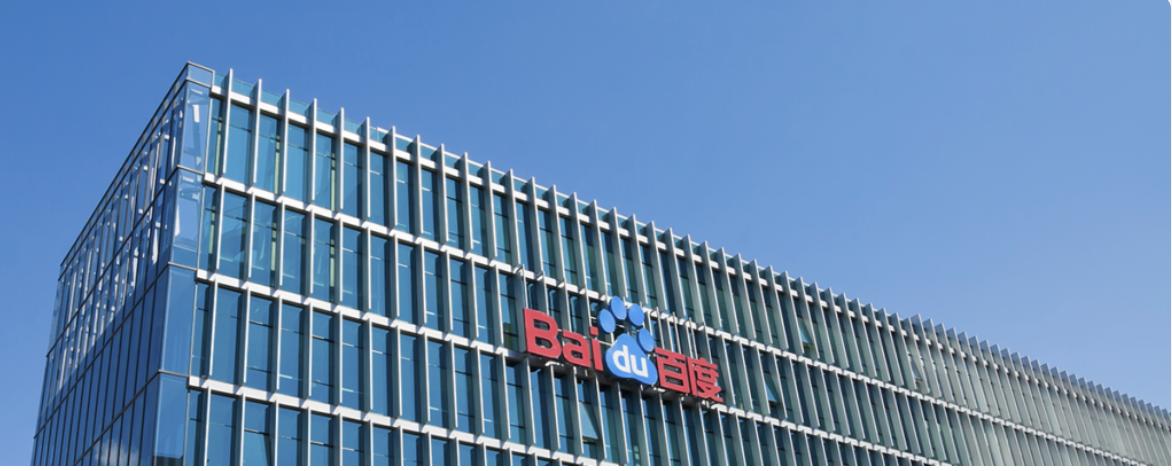Baidu Q2 Earnings Overview
Search engine, AI, and autonomous vehicle company Baidu beat analyst estimates in its Q2 results, reported overnight. On the call, founder and CEO Robin Lie attributed the company’s positive results to, you guessed it, strong advertising (online marketing business), which led to a strong increase in top line revenue and bottom-line net income versus one year ago. Baidu’s monthly active users (MAUs) were up +8% year-over-year (YoY). Meanwhile, Baidu was also ranked the No. 1 Cloud Data Provider in China by IDC. The company’s Apollo Go ride hailing program completed 714,000 rides in Q2, more than double the amount of rides completed in Q2 2022.
Non-GAAP (Adjusted)
- Revenue increased +14.9% to RMB 34 billion versus an estimated RMB 33 billion
- Net Income RMB 5.2 billion
- Net Margin 15% versus 12% in Q2 2022
- Earnings per Share RMB 16.5
Kuaishou Q2 Earnings Overview
Kuaishou had a strong beat in its bottom line (net income/profit) due to strong momentum in its live-streaming and E-Commerce business. Like Baidu, the company benefitted from the return of advertising revenue in Q2. Kuaishou is now China’s third-largest livestreaming E-Commerce platform, behind only Alibaba’s Taobao and Bytedance’s Douyin. On the call, CEO and co-founder Cheng Yixiao stated that the company was proud to have achieved its first-ever group-level net profit, a significant milestone for the growing platform.
Non-GAAP (Adjusted)
- Revenue increased +27.0% to RMB 28 billion versus an estimated RMB 27 billion
- Net Income RMB 1.5 billion
- Net Margin 5% versus -14% in Q2 2022
- Earnings per Share RMB 0.34
Key News
Asian equities were mostly higher, except for the Philippines, as Hong Kong and Mainland China outperformed the region.
US Commerce Secretary Gina Raimondo will visit China next week, where she will meet with both Chinese leaders and US business leaders in China. This is yet another green shoot in US-China relations.
We spoke with a Hong Kong derivatives broker about the steady foreign outflows from Mainland China stocks in Northbound Stock Connect in recent weeks, which is seen as the way that foreign investors mostly access Mainland Chinese markets. Many news outlets have hailed intense foreign outflows. He said that that is not necessarily true as he is seeing high demand for CSI 300 futures. He believes that many foreign investors are selling Mainland stocks in favor of futures.
Hangzhou recently did the previously unthinkable: reformed its “hukou” system. The central eastern Chinese city is the first to relax the strict residency restrictions known as “hukou”, which restrict where you can receive public benefits such as education based on where in China you were born. This is immensely positive not only for the city’s ability to attract more migrant workers, but also for its real estate market. Relaxing “hukou” requirements may lead to more demand for real estate and is one of the key structural reforms that has the potential to stabilize the real estate market.
Hangzhou’s move is one of many that city and local governments across China are making to stimulate their own economies. While more top-down stimulus is needed, I do not think enough attention is given to the actions of local governments, which have become more consequential. Recent central government messaging has implied that local governments should find and enact the measures that suit their respective regions the best.
The Hang Seng and Hang Seng Tech Indexes both closed higher by +0.95% and +1.98%, respectively, overnight on volumes that decreased -6% from yesterday. Short sale turnover also decreased by a striking -22% as Hong Kong stocks rebounded. Mainland investors bought a net $94 million worth of Hong Kong stocks via Southbound Stock Connect. All sectors were higher. The top-performing sectors were Materials, which gained +2.52%, Information Technology, which gained +1.95%, and Consumer Discretionary, which gained +1.61%. Meanwhile, the worst-performing sectors were Consumer Staples, which gained +0.12%, Real Estate, which gained +0.44%, and Communication Services, which gained +0.73%.
Shanghai, Shenzhen, and the STAR Board all closed higher by +0.88%, +0.47%, and +1.01%, respectively, on volume that increased +20% from yesterday. Foreign investors sold a net -$814 million worth of Mainland stocks overnight. The top-performing sectors were Communication Services, which gained +3.71%, Energy, which gained +2.18%, and Information Technology, which gained +1.98%. Meanwhile, the worst-performing sectors were Health Care, which fell -0.43%, Consumer Staples, which gained +0.06%, and Utilities, which gained +0.38%.
Last Night’s Performance
Last Night’s Exchange Rates, Prices, & Yields
- CNY per USD 7.30 versus 7.28 yesterday
- CNY per EUR 7.91 versus 7.94 yesterday
- Yield on 1-Day Government Bond 1.45% versus 1.40% yesterday
- Yield on 10-Year Government Bond 2.56% versus 2.54% yesterday
- Yield on 10-Year China Development Bank Bond 2.67% versus 2.65% yesterday
- Copper Price +0.73% overnight
- Steel Price +1.03% overnight
Read the full article here


